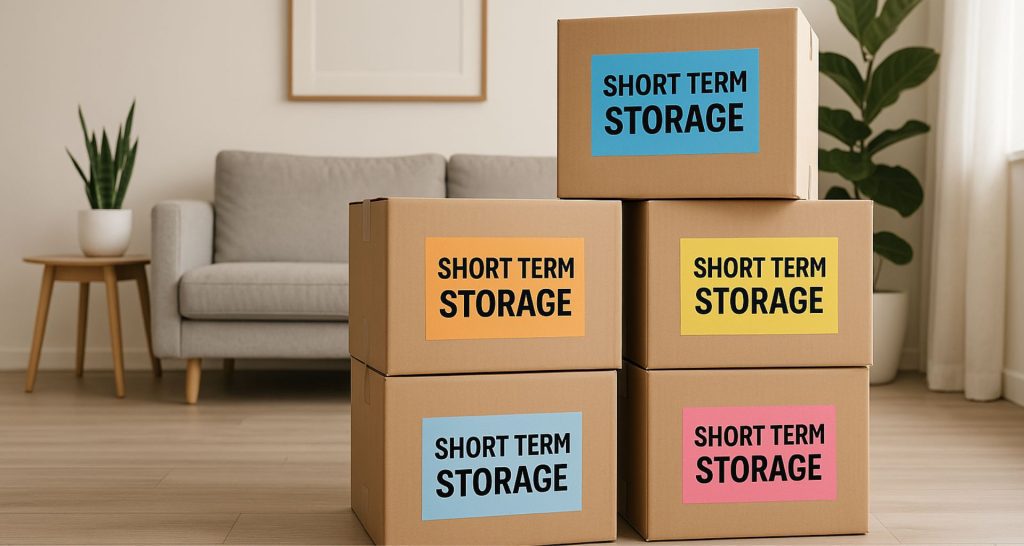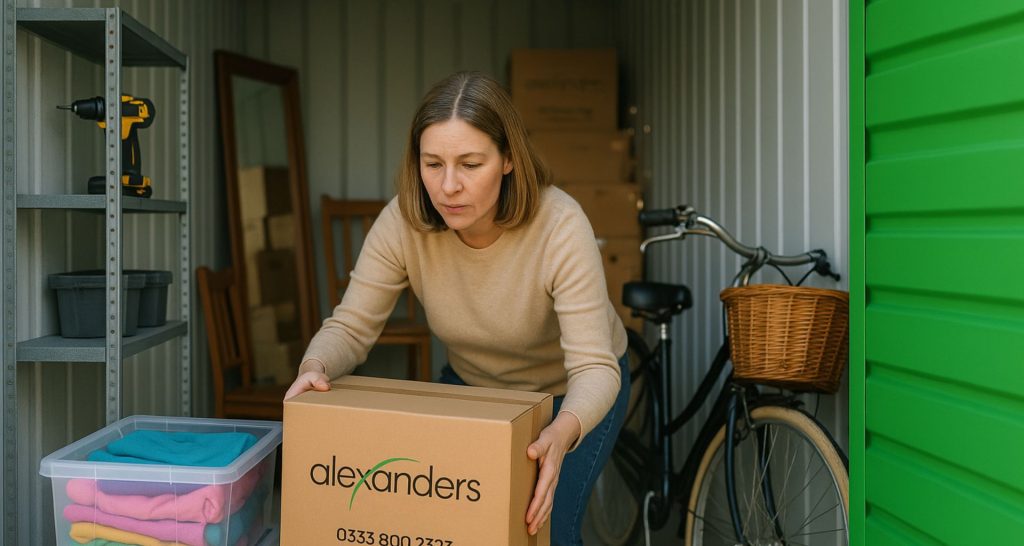Proper storage is essential for preserving your books and magazines now and for years to come. Collections of books and magazines can have considerable monetary value but more often they hold significant sentimental value meaning it is worth keeping them in good condition and preserving them for the future.
Such bulky items as books and magazines can also take up a significant amount of space in our homes so using short-term or long-term storage solutions frees up space, reduces clutter and improves organisation.
So, whether you’re an avid book lover with a valuable collection, or simply want to declutter your home, following these guidelines will help protect your literary treasures from damage while creating space at home.
How to pack books away
When you need to pack books for storage or moving, proper techniques and systems are essential to prevent damage:
- Wash and dry your hands before handling your books.
- Make sure books are dust-free and clean before you pack them up. Any dust or dirt could discolour the paper over time in storage.
- Use sturdy, acid-free boxes. Choose smaller, strong boxes specifically designed for books to prevent excessive weight.
- Don’t pack books with other objects that could damage them.
- Protect valuable editions: Wrap special or rare books individually in acid-free tissue paper.
- Maintain proper arrangement: Pack similar-sized books together, either flat or standing upright. Use extra packaging to keep them upright where necessary. Mark the box to show which way is upright.
- Mind the packing density: Don’t pack too tightly (causing pressure damage) or too loosely (allowing shifting during transport).
- Consider weight distribution: Place larger and heavier books at the bottom of boxes to prevent crushing lighter volumes.
- Ensure structural integrity: Use high-quality packing tape to secure boxes, reinforcing the bottoms for extra support.
- Label clearly: Mark boxes as “Books – Heavy” and indicate which side should be up. Label the boxes on the sides and lid with the titles of the books inside so you can easily see what’s inside. Alternatively take a photo of all the spines, print it out and attach it to the outside of the box.
- Elevate in storage: Keep packed boxes off the floor using pallets or shelving to protect against potential water damage.
- Perform regular checks: If books will be in storage for extended periods, inspect them occasionally.
- Fill empty spaces: Use acid-free paper or bubble wrap to fill gaps, preventing books from shifting during transit.
- Do not use non-archival plastic to wrap books as plastic can trap moisture.
How to protect and store magazines
Magazines present unique storage challenges due to their typically thinner paper and binding:
- Magazine holders: If possible, store magazines upright in acid-free magazine boxes or holders for proper protection.
- Archival sleeves: Place particularly valuable issues in individual archival polyethylene or polypropylene sleeves.
- Binding: Consider having complete sets professionally bound for long-term preservation.
- Organise your magazines so you can find the ones you want easily when they’re in storage. Arrange by date, title, or subject for easy access.
- Keep index issues separate and easily accessible.
- For magazines you reference frequently, consider digitising them while preserving the originals in storage.
Should books be stored flat or upright?
This is one of the most common questions about book storage, and the answer depends on the book:
Upright book storage (vertical)
- Best for: Most hardcover and paperback books with sturdy binding
- Advantages: Prevents warping of covers and pages, allows for proper spine alignment
- Key tip: Ensure books are snug but not cramped; they should stand straight without leaning
Flat storage of books
- Best for: Oversized, heavy books, books with damaged spines, and antique or rare volumes
- Advantages: Reduces stress on the binding, prevents spine damage
- Key tip: Stack no more than 3-4 books to avoid excessive weight on bottom volumes, and arrange with spine and fore edges alternating
Maintain proper environmental conditions
Books and magazines are sensitive to their surroundings, so where they are stored is crucial to make sure they don’t get damaged.
- Temperature and humidity: Keep books in a cool, dry place.
- Light exposure: Shield books from direct sunlight and fluorescent lighting, which can fade covers and yellow pages over time.
- Air circulation: Allow for some air movement around books to prevent mould growth, but avoid placing them directly in front of air vents.
The dangers of improper storage locations
While it might be tempting to use your attic, garage, or cellar for book storage, these areas pose significant risks:
- Attics typically experience extreme temperature fluctuations, with excessive heat in summer and cold in winter. This cycling between hot and cold can cause paper to expand and contract, damaging bindings.
- Garages often lack proper insulation and are prone to dampness, creating ideal conditions for mould and mildew growth. Pests, such as mice, can also more easily access garages than other parts of your home.
- Cellars frequently have high humidity levels and are susceptible to flooding, which can be catastrophic for paper items. Even low levels of damp can cause books to warp and bend.
Professional storage solutions
For valuable or extensive book collections, or when home space is limited, professional storage facilities – like those provided by Alexanders – offer significant advantages:
- Cool, dry environment with more stable conditions than attics, garages, or cellars
- Protection from light damage
- Enhanced security features, such as CCTV and individual keys to self-storage units
- Peace of mind for your literary investments
Need help storing your precious books and magazines?
At Alexanders, we understand the importance of preserving your valuable reading materials. Our cool, dry self-storage solutions provide a much safe environment for books, magazines, and other paper items, protecting them from damaging humidity and light exposure.
Whether you’re moving home, downsizing, or simply need extra space for your growing collection, our secure facilities offer the perfect solution for both short and long-term storage needs.
Contact us today at 0333 800 2323 to learn more about our specialised storage options and how we can help preserve your treasured reading material for years to come.

Updated Daily






